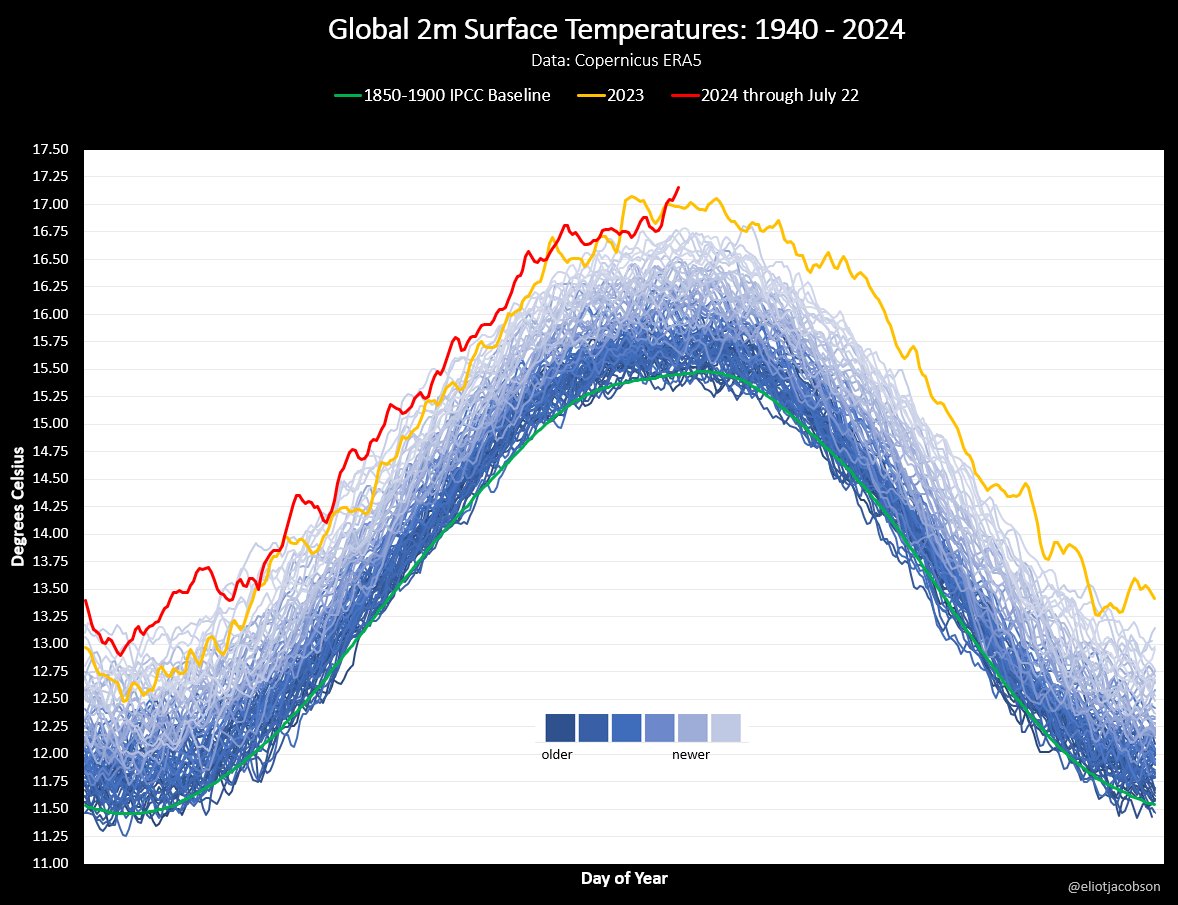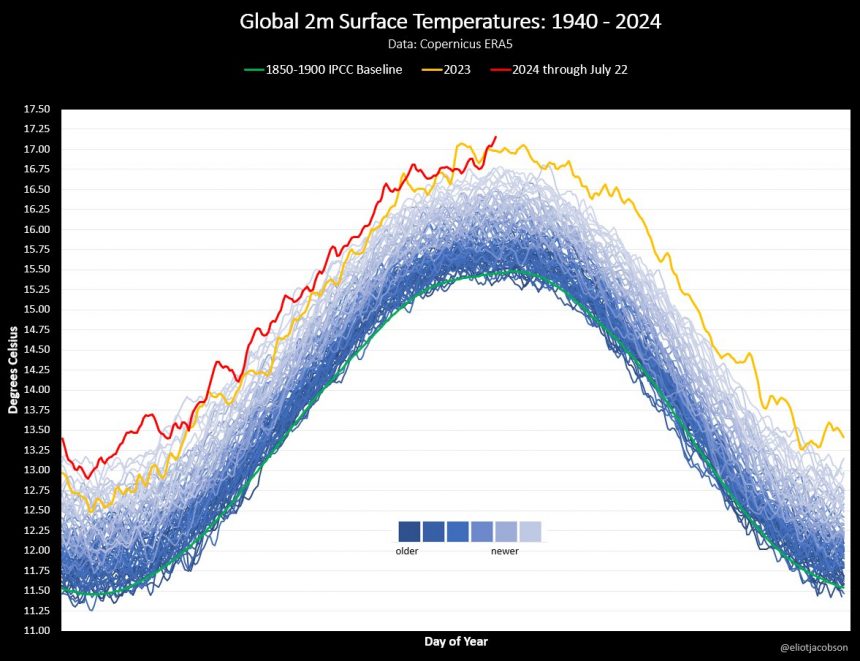
Monday marked the second consecutive day of record-breaking global temperatures. Climate change continues to escalate the heat.
Sunday experienced the hottest day on record worldwide, until Monday surpassed it. The global average surface air temperatures on Monday reached 17.15°C, slightly higher than Sunday’s 17.09°C. Both temperatures exceeded the previous record of 17.08°C set in July 2023.
This climate data is compiled from preliminary data by Copernicus EU, the EU Space Programme’s Earth Observation component, comparable to NASA in the US.
Related: Should I workout on the hottest summer days?
The Middle East is facing unprecedented heat waves. In Saudi Arabia, 1300 pilgrims succumbed to heat exhaustion during the Hajj in June.
In the United Arab Emirates, temperatures routinely surpass 40°C (104°F), leading to a surge in heat-related illnesses. Healthcare professionals are witnessing an increase in cases, from heat exhaustion to dehydration and aggravated chronic conditions.
Rescue centers in the UAE are cautioning about a rise in animal abandonment due to the scorching Dubai temperatures. Owning wild animals in the region is now prohibited.
Neurologist Dr. Mohamed Ahmed Abouelyazed Elshafei of Zulekha Hospital, Dubai, stated that soaring temperatures have exacerbated various health conditions. The heat can trigger issues like hypertension, dehydration, migraines, and even kidney injury.
Countries like Bahrain have instituted daily siesta periods for foreign workers to prevent exposure to the mid-day sun. While summer workouts are appealing, it’s essential to consider safety measures before engaging in strenuous activities in extreme heat.





